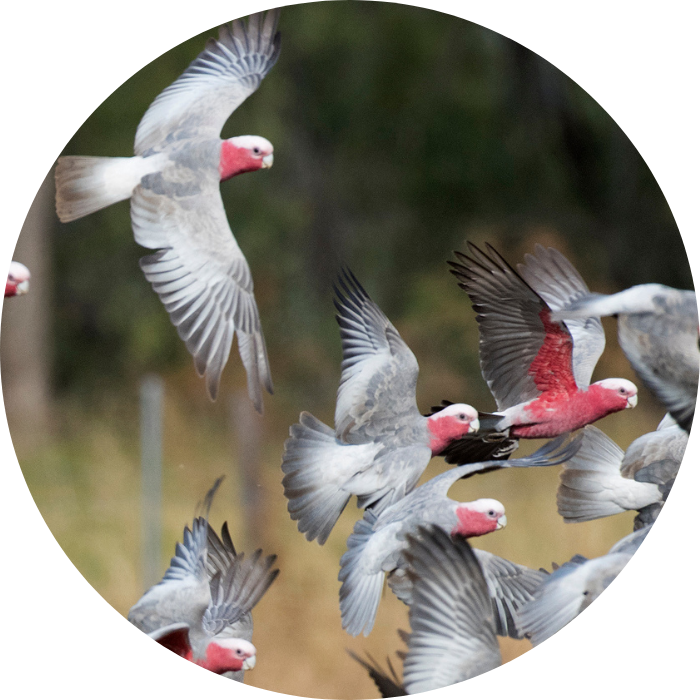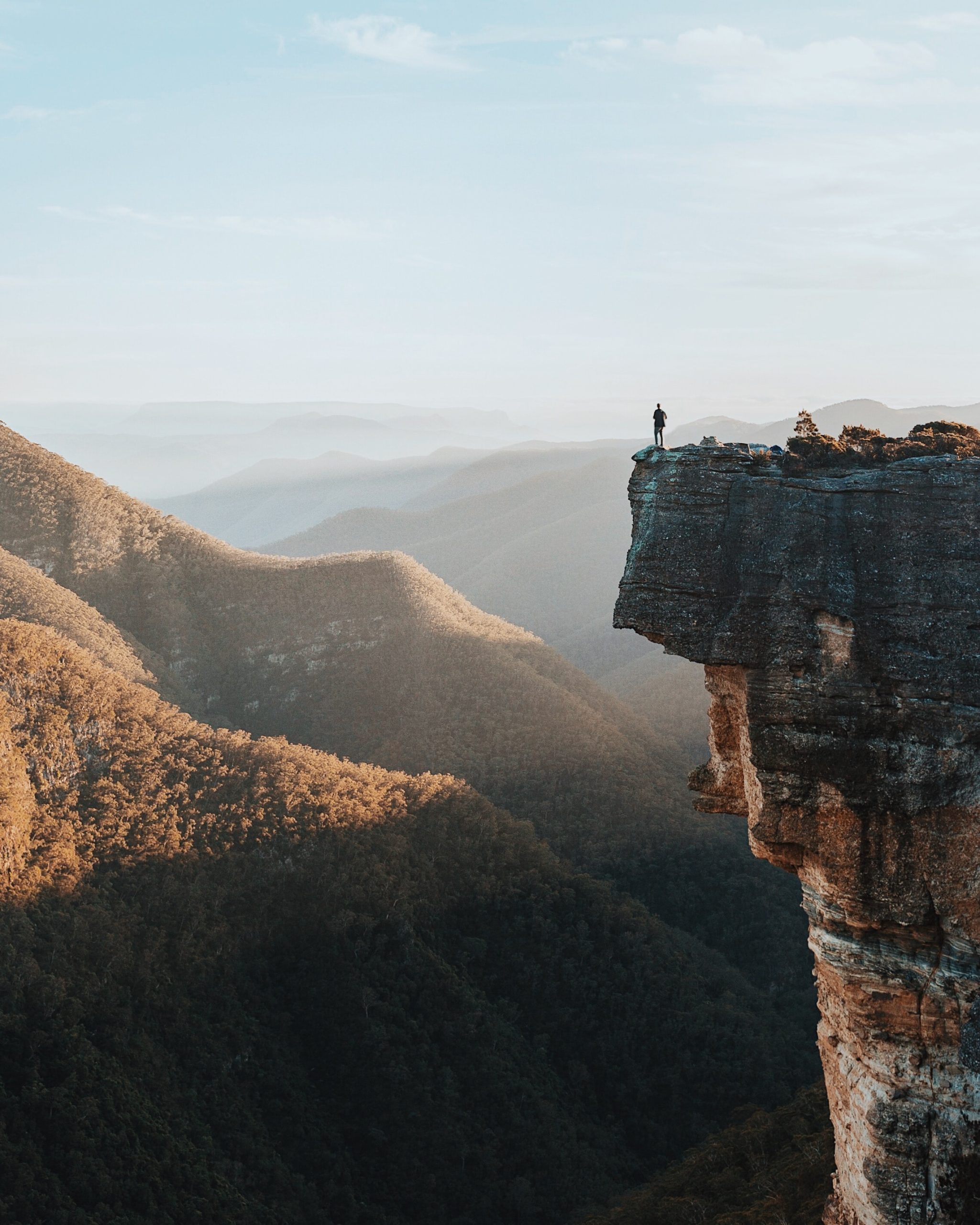Meet ECoCeQ
The Environment Council of Central Queensland (ECoCeQ) is a small environment group acting as a voice for the environment in the region.
Surround by reefs, rainforest, koalas, and a staggering number of coal mines, the group formed out of rapidly growing concern for the health and future of the local environment and the impact local developments are having on our planet’s climate.
“The climate changing was affecting our natural wonders. The Great Barrier Reef, koalas, all the things that make us Australians, were in danger of slipping away,” ECoCeQ President Christine Carlisle says.
The organisation, born from the need to protect special places wildlife, has taken a bold step in their determination to ensure Australia’s Living Wonders can survive and thrive for generations to come.
ECoCeQ wishes the thank everyone who wrote submissions to the Environment Minister, who supported them taking the Minister and two coal mining companies to court, and who donated so generously towards their legal costs.
They also thank their legal team from Environmental Justice Australia and their team of committed barristers.
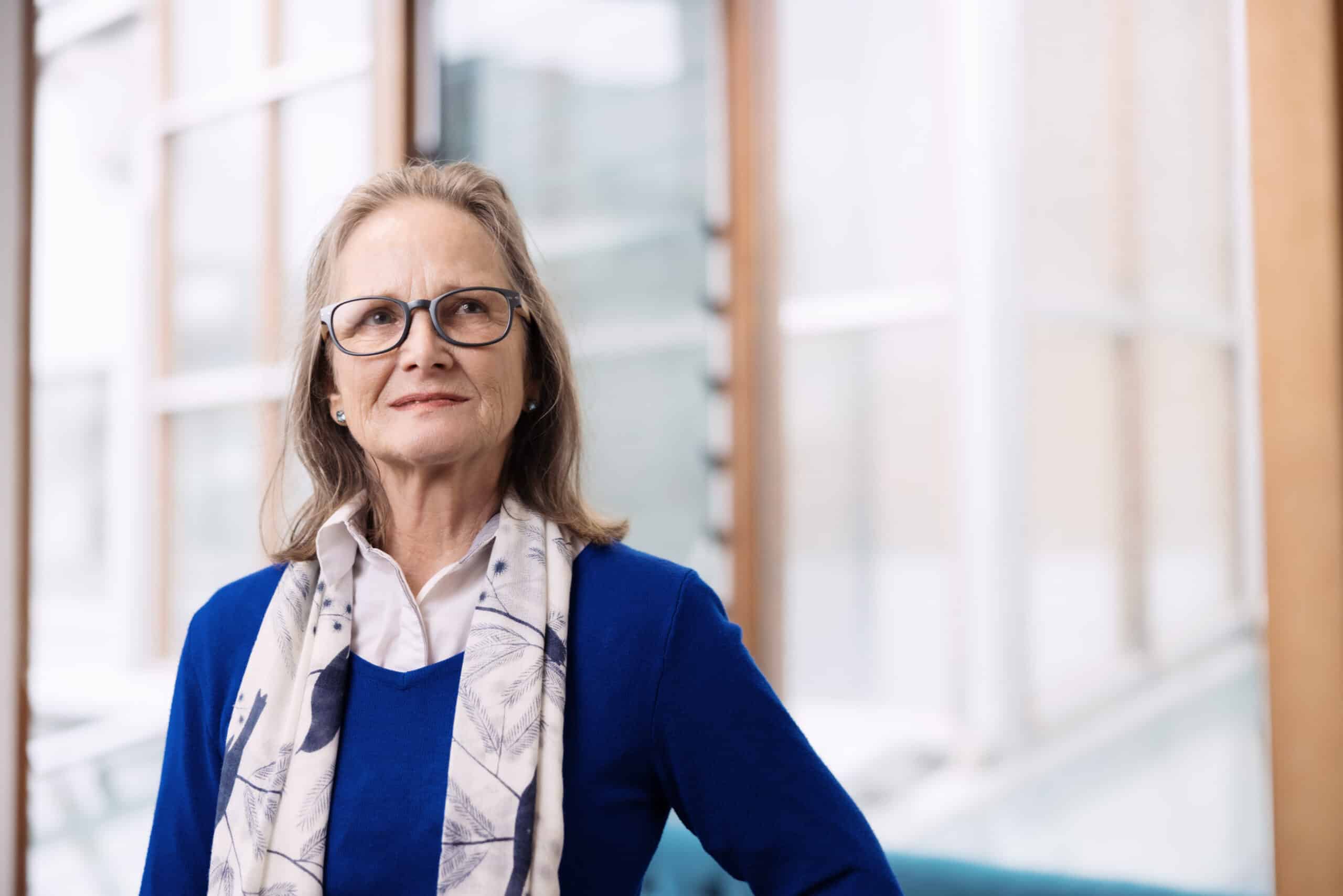
“The time to act is now. The science is clear. If our governments won’t act, then we must.”
– Christine Carlisle, ECoCeQ
Meet the lawyers
Environmental Justice Australia
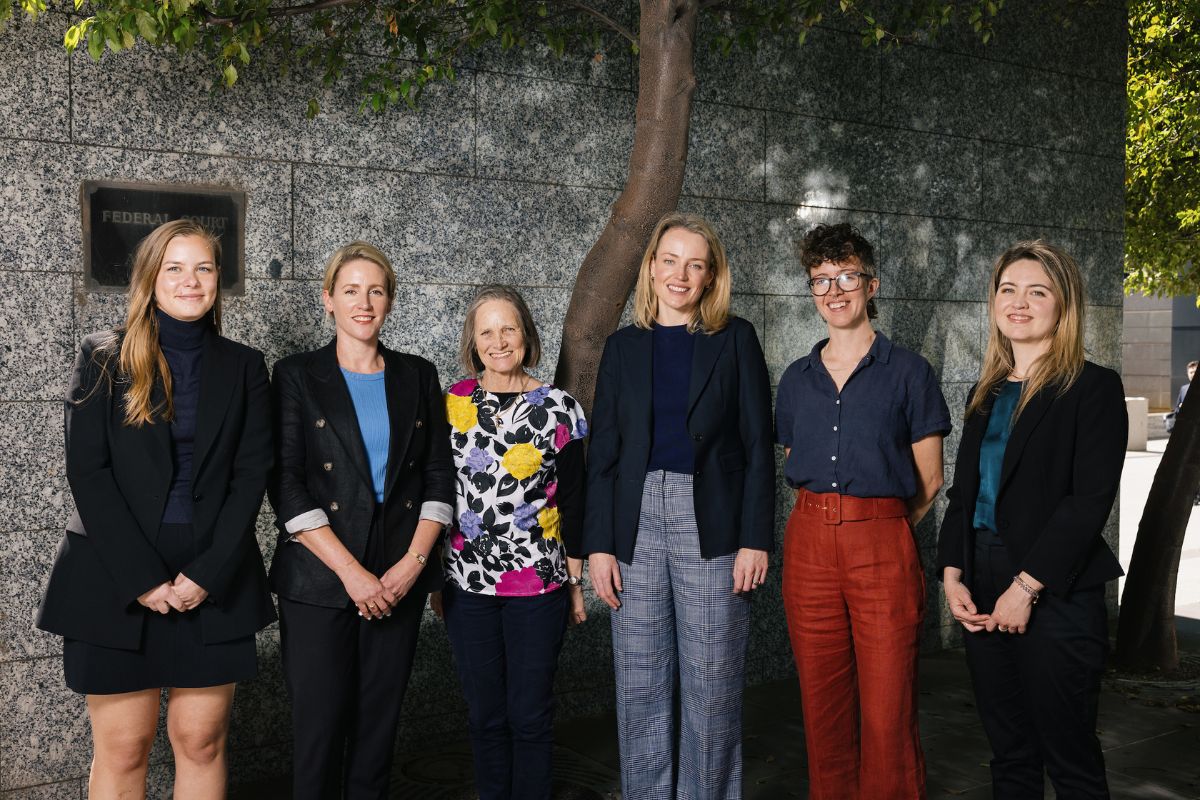
Environmental Justice Australia is a national public interest legal organisation.
For more than 30 years, EJA has used the law to empower communities, to protect and regenerate nature, to safeguard our climate and to achieve social and environmental justice.
We are proudly non-profit, non-government, and funded by donations from the community.

Retta Berryman
EJA climate lead and senior specialist lawyer
Retta’s work focuses on the role of institutions and governance systems in the management of climate risks to people, communities and nature.
She has broad public law expertise and previously worked as a legal advisor and litigator for the Victorian government. She has specialised knowledge of domestic human rights instruments in Australia, including experience conducting litigation under the Charter of Human Rights and Responsibilities Act 2006 (Vic).
She started her career in a specialist community legal centre providing advice and contributing to law reform campaigns. Retta holds a Juris Doctor and a Bachelor of Social Science.

Hannah White
EJA Senior Lawyer
Hannah White is a senior lawyer in EJA’s climate team.
Before joining EJA, Hannah worked as a senior prosecutor with the federal government, running a broad range of criminal matters including environmental and white-collar crime prosecutions. She has also worked with the Net Zero Lawyer’s Alliance to help legal practitioners provide net zero-aligned advice.
Hannah has a Bachelor of Laws (Hons) from the University of Wollongong and a Master of Laws from New York University. Most recently, Hannah co-developed climate-focused short courses for the Democratising Education for Global Sustainability and Stewardship Programme at the University of Cambridge.

Sam Moorhead
EJA Lawyer
Sam is an EJA lawyer who focuses on holding decision-makers to account for the impacts of their actions on communities and ecosystems. Using their legal, policy and systems analysis skills, Sam helps create collaborative, community-driven efforts to prevent climate change.
Previously, Sam provided research and strategy support to community activists fighting fossil fuel projects around Australia. Sam has also worked as a consultant in the government advisory sector, and as an Associate at the Supreme Court of Victoria.
Sam holds a Bachelor of Arts, a Juris Doctor and a Graduate Certificate in Environment.
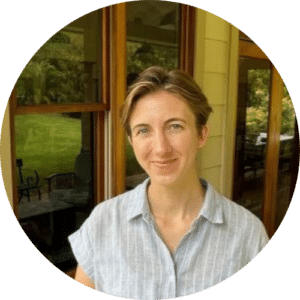
Cecile Bester
EJA Lawyer
As a climate lawyer at EJA, Cecile brings a longstanding passion for environmental issues and enjoys finding strategic ways to use the law for climate justice.
Before joining EJA, she worked as a lawyer for the Australian government, an Associate to a Federal Court judge, and at the commercial law firm Clayton Utz.
Cecile has a BSc/LLB (Hons) from the University of Technology, Sydney and a Master of Laws (Distinction) from the London School of Economics.
Cecile also writes stories and essays. She loves to spend time outdoors, quietly observing little details and finding peaceful spots to swim.

Shannon McGrellis
EJA Paralegal
Shannon provides crucial legal and administrative support to the climate and coal pollution teams across strategic litigation and community engagement.
With a strong commitment to environmental advocacy and community engagement, Shannon is a driving force behind our efforts.
Before joining EJA, Shannon worked on Native Title in southern Queensland, supporting Traditional Owners to achieve self-determination through Native Title recognition.
She is a law graduate with experience in biological sciences and on citizen science projects in Queensland and Western Australia.
Thank you
ECoCeQ gratefully acknowledges the involvement of Emrys Nekvapil SC, Kylie Weston-Scheuber, Jim Hartley, Veronica Holt, Maya Narayan, Julia Wang, Katharine Brown, Laura Schuijers and Jamie Blaker of the Victorian Bar.
ECoCeQ also acknowledges Hollie Kerwin and Brittni Dienhoff for their instrumental work on the Living Wonders legal intervention.
Meet the Friends of Living Wonders
In the course of preparing this legal intervention, a group of Friends of Living Wonders, from all corners of Australia, decided to speak out in support of this request to the Minister.
These friends come from different backgrounds and have different experiences of climate change. What unites them is their shared commitment to speaking out for the places, plants, communities and wildlife they love.

Bailai Elder Mabel Quakawoot
Curtis Island, near Gladstone, Queensland
A south-sea islander and the oldest living Bailai Elder, Mabel Quakawoot’s determination to protect Country has been with her since she was a little girl.
In her 85 years, Mabel has seen her ancestral homelands decimated by a gas port, on Curtis Island, near Gladstone.
Growing up outside of Rockhampton, Mabel spent much of her childhood on Bailai Country, learning the value of every aspect of the environment from her grandmother.
“She was where I got my passion for the environment,” Mabel recalls, “Right from when I was small.”
Today, Mabel lives surrounded by the bush and at the gateway to the Great Barrier Reef in Mackay.

Ngarigu woman Professor Jakelin Troy
Snowy Mountains, southern NSW
As a Ngarigu woman, the snow-capped mountains and rushing rivers of the NSW Snowy Mountains are fundamental to Professor Jakelin Troy’s identity.
But the effects of climate change have already left scars. Her totem, the ghost fish or mountain galaxias is the only native mountain fish found above the snowline year-round and may now be extinct in its original habitat.
The Director of Indigenous Research at the University of Sydney is a passionate advocate for protecting Country and believes deeply in the need for effects of climate change on First Nations country to be recognised and acted on urgently.

Marine Biologist Professor Jodie Rummer
Townsville, Queensland
Since she was a child, Jodie Rummer has been in awe of the underwater world and in desperate search of a way to breathe underwater.
Now a leading professor in marine biology at James Cook University and Research Associate at the Australian Research Council Centre of Excellence for Coral Reef Studies, Jodie spends much of her time understanding the complex lives of fish, sharks and rays and the effects climate change is having on creatures in the Great Barrier Reef.
“Evidence based decisions are vital. It’s time to start working with scientists. We are in a critical decade in respect to climate change and how it is affecting natural systems across the world,” Jodie says.
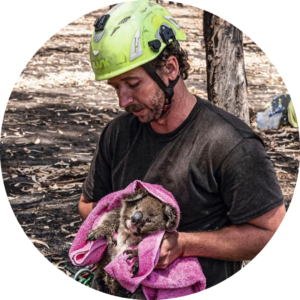
Koala rescuer Kailas Wild
Sydney, New South Wales
Kailas Wild is an arborist, conservationist and wildlife rescuer from Sydney who has seen the impact of climate change on our unique wildlife first hand.
As the bushfires devastated Kangaroo Island’s koala population in the Black Summer bushfires, Kailas heard they needed a tree climber to help rescue the injured koalas. He drove 1500 kilometres from Sydney to volunteer, and helped rescue 100 koalas.
As Kailas says, “We all shared the profound sense of grief at the loss of over a billion of our unique wild animals, along with their habitats. The number was, and still is, beyond comprehension. For months we all felt helpless, myself included.”
Rescuing koalas is what he did in response to that feeling – “to try and help wildlife, and also myself.”
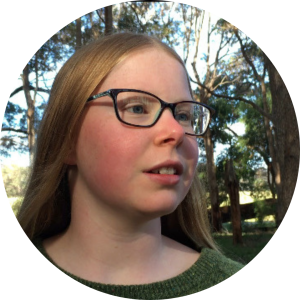
School student Emma Heyink
Margaret River, Western Australia
Fifteen-year-old student Emma Heyink watched national parks burn and friends flee their homes when bushfires ripped through Margaret River, most recently in 2021.
“I have grown up watching my region burn in fires driven by climate change from the second most destructive fire in Australia when I was four, to the most recent 2021 fires, and seen first hand the effects of climate change on people and the environment, which is why I’m calling for climate action to protect my future and the future of others and the environment.”
“It was surreal,” Emma reflects, on the blood red skies, the burnt remains of her favourite places, and the toll on the unique and beloved animals already under threat.
Concerned about what the future holds for her, and generations to come, Emma took to the streets, organising strikes to demand climate action.
“I hope Tanya Plibersek can see there are personal stories from across the country, linked to each and every Matter of National Environmental Significance. I hope she understands why this is so vital and so urgent,” Emma says.
Read the latest news

News and updates
Read the latest news on this landmark litigation and why it is so significant
Read the legal arguments
Until now, Australia’s environment ministers have failed to scrutinise the biggest threat of them all: climate change